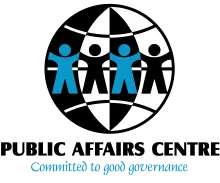A think tank committed to good governance, the Public Affairs Centre (PAC) is more than two decades old, and has consistently adopted the cause of the citizen in the formulation, implementation and review of government programmes in the country. The well-known Citizen Report Card (CRC) is one of its early social accountability tools that assisted the government in understanding the opinion of the people on the nature and quality of the programmes put into place by the government and its many agencies. Over the years, it has brought out several treatises and publications that reflect its concern towards good governance and citizen engagement.
Partnering with governments and non-governments alike, the PAC has helped build capacities in both the community and the state. Our strength is in engaging the community and strengthening service delivery at the 'last mile'. We have an extensive network of non-government civil society partners who give us both the reach and depth necessary to engage with individuals, households and the community across the country.
It is now widely recognized that data and evidence based praxis is central to deploying systems based solutions to enhance equity and inclusion; reorganising public services around peoples' needs and expectations; and enhancing capacities at the last mile on both the supply and the demand sides. This is especially true of the development challenges that need to be addressed in a vast, diverse and pluralist society like India. In the UNDP Human Development Report 2016, India ranks 131 out of 188 countries surveyed. Two important facts emerge from this: first, that after 70 years of independence we are yet a work in progress and therefore a sense of urgency must permeate all levels of public governance; and second, that we must recognise and understand patterns of exclusion if our development strategy has to reach out to those left behind.
In 2016, the PAC introduced the 'Public Affairs Index' (PAI), a log frame, to measure the quality of governance in the states in India and rank them on the basis of a standardised data based framework. The fact that it was based entirely on data residing within government – at the centre and the states – lent credibility to it and PAI has since received recognition as a relatively reliable index. This year our effort has been to improve it further. The highlight of PAI 2017 worth noting is that we have added a chapter on 'Inequality', to emphasize the divergence between regions and states and the divergence within communities and hence the need to prioritize equity and inclusion as key governance objectives in India's otherwise remarkable journey on the path of development.
